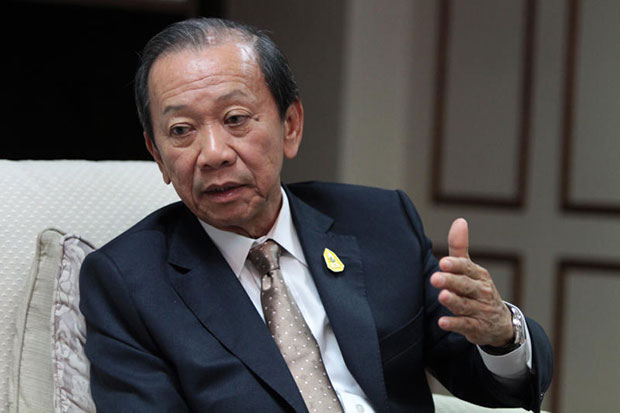Manufacturing performs better than other sectors
- Published: 09 Sep 2025 at 05:46 0 comments
- WRITER: Kanana Katharangsiporn

An artist's rendition of serviced industrial land within Araya – The Eastern Gateway.
Despite potentially flat growth, the industrial property sector continued to outperform other real estate segments, supported by clearer US tariff policies and strong foreign direct investment (FDI) momentum in the first half.
Nattha Kahapana, managing director of property consultancy Knight Frank Thailand, said investors in the manufacturing sector have begun to study and adapt after the US imposed a new reciprocal tariff rate of 19% on Thai goods early last month.
"This rate is competitive compared with neighbouring countries," he said. "The situation is now clearer: investors who had planned to come will proceed, those who had not will stay away, and those who see Thailand as a production base or a beneficiary still continue to invest."
He said many investors have been able to adapt and expand their investments. The company was recently approached by a Chinese tool manufacturer planning to establish a production base in Thailand, seeking a site of about 20,000 square metres.
"The manufacturing sector remains the key driver of investment compared with other real estate segments," he said. "Most of its supply chain is geared towards exports to the US."
According to the Board of Investment, the number of approved projects rose to 530, up from 472 during the same period of 2024, with a combined investment value of more than 368.5 billion baht, an 85% increase year-on-year.
Key growth drivers were the digital sector, which expanded by 900% to 206 billion baht, electrical and electronics, which rose by 146% to 79.3 billion baht, and automobiles and parts at 23.2 billion baht.
This trend underscored Thailand's strategic shift towards high-value industries and reinforced its growing role as a regional hub for technology, electronics and advanced manufacturing.
Demand for serviced industrial land plots, both for sale and lease, surged to 4,684 rai, up 34% from the second half of 2024.
The cumulative sales rate reached 90%, rising 1.2 percentage points half-on-half, while the average asking price increased 4.5% to 6.64 million baht per rai. Total supply stood at 184,028 rai, up 1.5%.
Although new factory licences declined, the rise in industrial land sales and FDI signalled a shift towards larger, capital-intensive initiatives.
"Land sales may slow as manufacturers assess tariff risks and adjust their supply chains. Nevertheless, with Thailand's established infrastructure, supportive policy framework and strategic focus on key sectors, the country remains well-positioned to attract high-value investments," he said.
Mr Nattha said the industrial property sector continued to outperform other real estate segments, as demand for serviced industrial land plots remained robust.
According to Knight Frank, the overall average occupancy rate for Bangkok offices fell 0.6% in the second quarter of 2025, reaching 77%.
Meanwhile, condo launches in Greater Bangkok hit their lowest level in 15 years.
The Bangkok hotel market also softened, with the average occupancy rate dropping 3.7 percentage points to 75.1% in the first half of 2025.



0 people commented about the above
Readers are urged not to submit comments that may cause legal dispute including slanderous, vulgar or violent language, incorrectly spelt names, discuss moderation action, quotes with no source or anything deemed critical of the monarchy. More information in our terms of use.
Please use our forum for more candid, lengthy, conversational and open discussion between one another.
Click here to view more comments